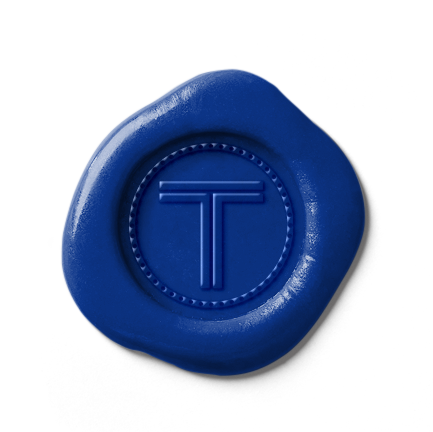Olive Oil
Every time you cook with olive oil, you’re continuing a long and celebrated history of one of the world’s most popular ingredients.
Researchers date the earliest known olive oil to about 6000 B.C. in Northern Israel, where farmers stored it in clay pots. The Ancient Egyptians used olive oil for skin care—its antioxidants protected them from sun damage and kept them looking young. Olive oil lamps lit the streets of Rome and Jerusalem. And as trade through the Mediterranean opened up, olive oil became a staple commodity in many parts of the globe.
Today, olive oil is in almost every kitchen in the Western world. We reach for it as a go-to cooking oil, use it as a base for sauces, and drizzle it over finished foods to impart lusciousness and depth. And olive oil isn’t just delicious. Fresh olive oil is great for you—brimming with polyphenols, antioxidants, monounsaturated fats, and other precious compounds that help you live a longer, healthier life.
Here’s a look at olive oil’s health benefits and how to find the best, freshest olive oil.
Healthy Aging
After several years of studying cultures all across the world, a team of National Geographic scientists released research on Blue Zones — places where people live the longest, healthiest lives.
The researchers settled on five Blue Zones:
Ikaria Greece, Sardinia Italy, Nicoya Costa Rica, Loma Linda California, Okinawa Japan
The cultures in Blue Zones share quite a few characteristics. They all value family and community. Their daily routines include walking, farming, hiking, or other light, continuous exercise throughout the day. They all drink moderately with dinner (usually wine). And finally, they all use olive oil as a cooking staple (with the exception of Okinawa, Japan).
It makes sense that olive oil features so prominently in the healthiest communities in the world. It’s packed with polyphenols, precious antioxidants that protect your cells from age-related decline.
Research has also found that older people who only used olive oil to cook were significantly healthier than those who used other fat sources.
Skin Care
The Ancient Greeks didn’t use soap. Instead, they rubbed their skin with olive oil before bathing. It turns out they knew what they were doing. Olive oil is a natural antimicrobial; it’s rich in compounds like quercetin and formononetin, polyphenols that kill many common bacteria and viruses.
The Ancient Greeks also applied olive oil before leaving the house — and again, they were smart to do so. Olive oil’s antioxidants are a natural form of sunscreen, protecting skin from UV rays and sun damage.
Olive oil is still a common ingredient in skin care today, both as a moisturizer and as part of many sunscreens. It’s a great way to keep your skin hydrated and youthful. That said, pure olive oil is quite strong. It’s about 1-2% bioactive compounds by weight, which can be too much for your skin. Using olive oil on its own can actually weaken your skin barrier and cause redness. Instead, dilute it in a neutral carrier oil like jojoba or sweet almond.
Heart Health
Olive oil is about 70% oleic acid, a precious type of fat that contributes to a lot of olive oil’s health benefits. The FDA recently reviewed research on oleic acid and heart health. They concluded that eating a high-oleic oil (like olive oil) every day may reduce your risk of heart disease. Another study found that people who eat more olive oil have a lower risk of arterial plaques, high blood pressure, stroke, and heart attack.
How to Find Good Olive Oil
Olive oil is a lot like wine: despite coming from a single fruit, there’s an extraordinary variety of flavors, textures, and levels of quality.
There are hundreds of varieties of olive, and differences in climate, growing season, rainfall, sun exposure, pressing method, and bottling style all influence the taste of the resulting oil. If you try a bottle of fresh, high-quality olive oil, you’ll taste the difference immediately. Good olive oil tastes alive. It has a velvety texture with complex flavors that can be peppery, fruity, herbaceous, nutty, and everything in between. The flavor comes from freshness. All the health-giving polyphenols and antioxidants in olive oil also contribute to the taste. As they degrade over time, they produce bitter compounds that can cause olive oil to taste unpleasant.
Freshness is the single most important factor in olive oil quality. With that in mind, here’s how to get good olive oil near you.
Check the Harvest Date
From the moment olive oil is pressed, producers face a race against time. With every week that passes, the olive oil degrades, and the flavor goes with it. As a result, many of the best olive oil producers print a harvest date on their bottles (the same is true of coffee beans, by the way).
Look for olive oil with the most recent harvest date you can find -- ideally within the last two months.
Store Olive Oil Properly
The three biggest things that degrade olive oil are light exposure, heat, and time. As a rule of thumb, never buy olive oil sold in a clear container. Opt for dark glass or metal that keeps light out, protecting the oil from harmful UV rays.
You also want to store your olive oil in a cool, dark place to minimize its exposure to heat and light.
Enjoy Your Olive Oil
Unlike many wines, olive oil does not improve with time. There’s no point in saving good olive oil for special occasions. The closer it is to the harvest, the better the oil will be. So use your olive oil with abandon. Share it with friends and loved ones. Drizzle it over grilled meats and vegetables, toss it with delicate greens, and use it to add depth to a chocolate dessert.
And above all else, enjoy your olive oil. It’s one of the most diverse ingredients in your kitchen and a delicious way to live a healthier life.


